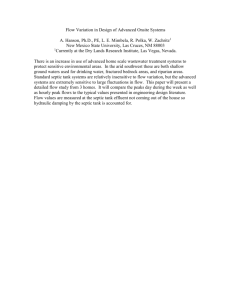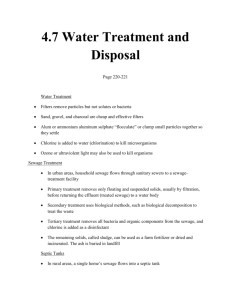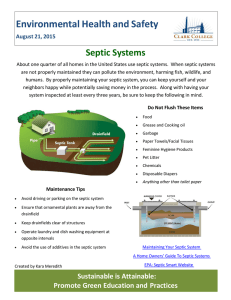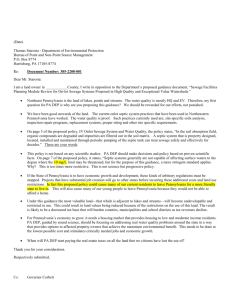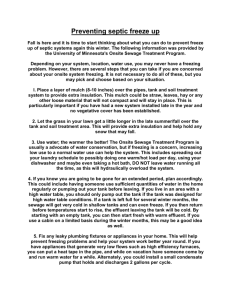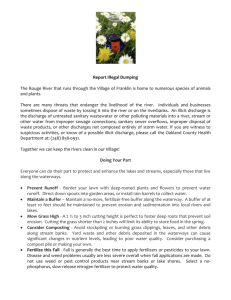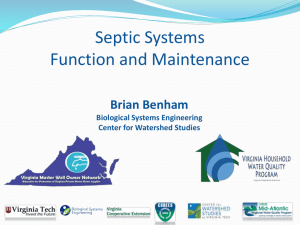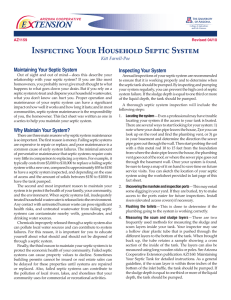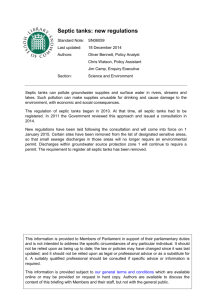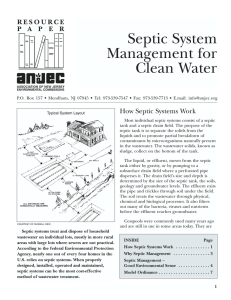Septic System Maintenance – If you are like most people, you know
advertisement
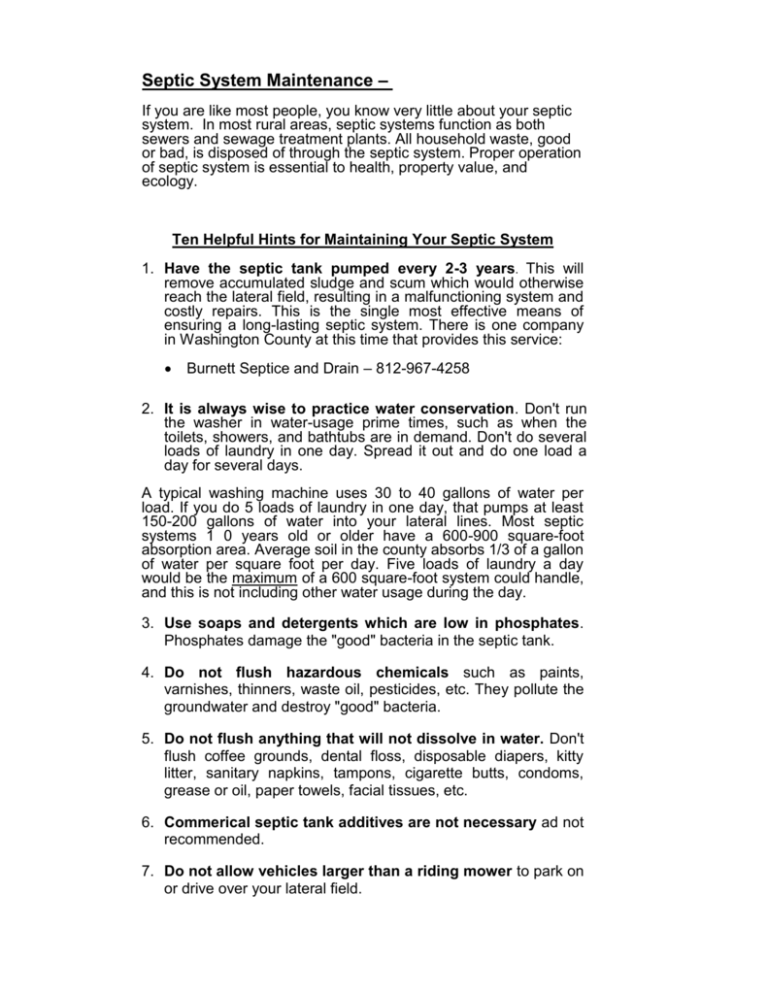
Septic System Maintenance – If you are like most people, you know very little about your septic system. In most rural areas, septic systems function as both sewers and sewage treatment plants. All household waste, good or bad, is disposed of through the septic system. Proper operation of septic system is essential to health, property value, and ecology. Ten Helpful Hints for Maintaining Your Septic System 1. Have the septic tank pumped every 2-3 years. This will remove accumulated sludge and scum which would otherwise reach the lateral field, resulting in a malfunctioning system and costly repairs. This is the single most effective means of ensuring a long-lasting septic system. There is one company in Washington County at this time that provides this service: Burnett Septice and Drain – 812-967-4258 2. It is always wise to practice water conservation. Don't run the washer in water-usage prime times, such as when the toilets, showers, and bathtubs are in demand. Don't do several loads of laundry in one day. Spread it out and do one load a day for several days. A typical washing machine uses 30 to 40 gallons of water per load. If you do 5 loads of laundry in one day, that pumps at least 150-200 gallons of water into your lateral lines. Most septic systems 1 0 years old or older have a 600-900 square-foot absorption area. Average soil in the county absorbs 1/3 of a gallon of water per square foot per day. Five loads of laundry a day would be the maximum of a 600 square-foot system could handle, and this is not including other water usage during the day. 3. Use soaps and detergents which are low in phosphates. Phosphates damage the "good" bacteria in the septic tank. 4. Do not flush hazardous chemicals such as paints, varnishes, thinners, waste oil, pesticides, etc. They pollute the groundwater and destroy "good" bacteria. 5. Do not flush anything that will not dissolve in water. Don't flush coffee grounds, dental floss, disposable diapers, kitty litter, sanitary napkins, tampons, cigarette butts, condoms, grease or oil, paper towels, facial tissues, etc. 6. Commerical septic tank additives are not necessary ad not recommended. 7. Do not allow vehicles larger than a riding mower to park on or drive over your lateral field. 8. Divert surface water, roof drains, sump pumps, hoses, and house footing drains away from the sewage system. 9. Sewage systems should have a good cover of grass, good ventilation, and abundant sunlight. Trees and shrubs should not be planted over sewage systems. Trees and shrubs planted between the septic system and a sinkhole, creek, pond, or lake, however, would be beneficial. 10. Be alert to these warning signs! Sewage surfacing over the lateral field. Sewage backing up in the house. Mushy ground of greener grass in the area of the lateral field. Slowly draining toilets or drains. Sewage odors. Following these tips and observing these warning signs will help to ensure a long-lasting sewage system, avoid expensive repairs, and protect everyone's water supply.
